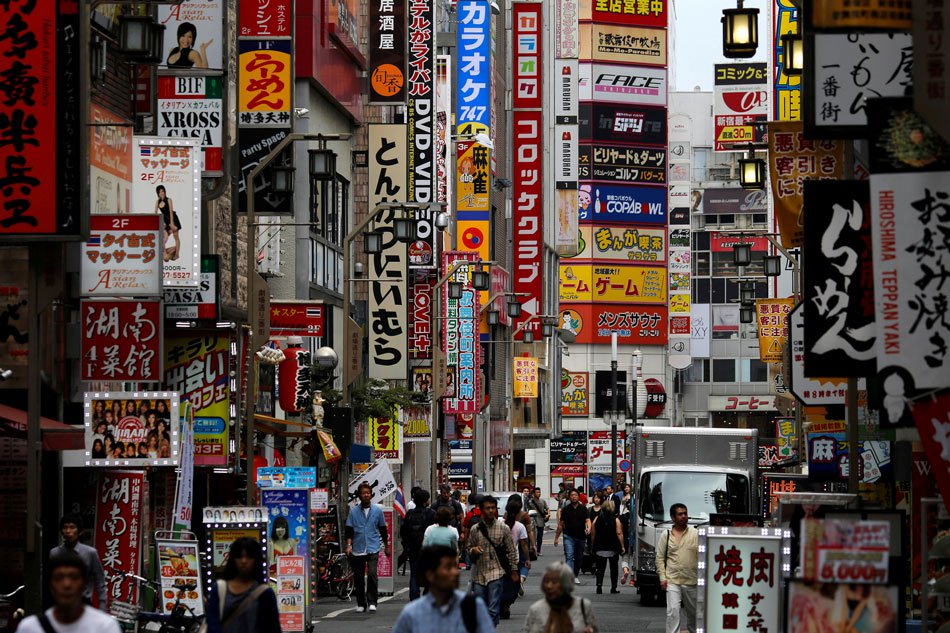Japan businesses expect RCEP deal to boost Asia trade, investment | ABS-CBN
ADVERTISEMENT

Welcome, Kapamilya! We use cookies to improve your browsing experience. Continuing to use this site means you agree to our use of cookies. Tell me more!
Japan businesses expect RCEP deal to boost Asia trade, investment
Japan businesses expect RCEP deal to boost Asia trade, investment
Kyodo News
Published Nov 15, 2020 08:13 PM PHT
TOKYO - Japanese business leaders welcomed the signing of the world's largest trade deal by Tokyo and 14 other Asia-Pacific partners on Sunday, expecting a boost in trade and investment in the region and strengthening of supply chains.
TOKYO - Japanese business leaders welcomed the signing of the world's largest trade deal by Tokyo and 14 other Asia-Pacific partners on Sunday, expecting a boost in trade and investment in the region and strengthening of supply chains.
"The signing is extremely significant toward realizing a free and open international economic order" at a time when some countries are becoming inward-looking due to the global novel coronavirus pandemic, said Hiroaki Nakanishi, chairman of the Japan Business Federation known as Keidanren.
"The signing is extremely significant toward realizing a free and open international economic order" at a time when some countries are becoming inward-looking due to the global novel coronavirus pandemic, said Hiroaki Nakanishi, chairman of the Japan Business Federation known as Keidanren.
The Regional Comprehensive Economic Partnership, covering some 46 percent of Japan's total trade, will be the country's first trade deal with both China, its largest trading partner, and South Korea, its third largest.
The Regional Comprehensive Economic Partnership, covering some 46 percent of Japan's total trade, will be the country's first trade deal with both China, its largest trading partner, and South Korea, its third largest.
Under the deal, Japan will see tariffs eliminated on 86 percent of items exported to China, 81 percent to South Korea and 88 percent to the countries of the Association of Southeast Asian Nations, Australia and New Zealand.
Under the deal, Japan will see tariffs eliminated on 86 percent of items exported to China, 81 percent to South Korea and 88 percent to the countries of the Association of Southeast Asian Nations, Australia and New Zealand.
ADVERTISEMENT
RCEP also sets common rules on e-commerce, intellectual property, customs and rules of origins.
RCEP also sets common rules on e-commerce, intellectual property, customs and rules of origins.
Due to the rules and lowering of tariffs, supply chains established by Japanese companies in Asia "will become more broad, effective and resilient," Akio Mimura, chairman of Japan Chamber of Commerce and Industry, said in a statement.
Due to the rules and lowering of tariffs, supply chains established by Japanese companies in Asia "will become more broad, effective and resilient," Akio Mimura, chairman of Japan Chamber of Commerce and Industry, said in a statement.
The 15 signatories to the deal said Sunday the pact remains open for India, which has skipped all negotiations since late last year due to concerns about opening up its market to China, and included provisions that would facilitate the Southern Asian country's smooth participation should it decide to return to the pact.
The 15 signatories to the deal said Sunday the pact remains open for India, which has skipped all negotiations since late last year due to concerns about opening up its market to China, and included provisions that would facilitate the Southern Asian country's smooth participation should it decide to return to the pact.
"We hope RCEP members will tenaciously encourage" India's return to the pact, which will contribute to strengthening supply chains encompassing the region, said Ken Kobayashi, chairman of the Japan Foreign Trade Council.
"We hope RCEP members will tenaciously encourage" India's return to the pact, which will contribute to strengthening supply chains encompassing the region, said Ken Kobayashi, chairman of the Japan Foreign Trade Council.
Among the agreements on market access with China, the world's second-largest economy will incrementally eliminate the 40 percent tariff it imposes on Japanese sake over 21 years after the deal takes effect.
Among the agreements on market access with China, the world's second-largest economy will incrementally eliminate the 40 percent tariff it imposes on Japanese sake over 21 years after the deal takes effect.
ADVERTISEMENT
China will also remove tariffs on some 87 percent of Japanese auto parts, steel products and household appliances, making 86 percent of Japan's China-bound industrial goods tariff-free as a result, sharply up from 8 percent.
China will also remove tariffs on some 87 percent of Japanese auto parts, steel products and household appliances, making 86 percent of Japan's China-bound industrial goods tariff-free as a result, sharply up from 8 percent.
Japan will remove tariffs on 49 percent to 61 percent of agricultural and fisheries products, but excluding five sensitive product categories -- rice, wheat, dairy products, sugar, and beef and pork -- and 47 percent to 99.1 percent of industrial goods.
Japan will remove tariffs on 49 percent to 61 percent of agricultural and fisheries products, but excluding five sensitive product categories -- rice, wheat, dairy products, sugar, and beef and pork -- and 47 percent to 99.1 percent of industrial goods.
RCEP consists of 10 ASEAN countries -- Brunei, Cambodia, Indonesia, Laos, Malaysia, Myanmar, the Philippines, Singapore, Thailand and Vietnam -- plus Japan, China, South Korea, Australia and New Zealand. Japan has free trade frameworks in effect with ASEAN, Australia and New Zealand.
RCEP consists of 10 ASEAN countries -- Brunei, Cambodia, Indonesia, Laos, Malaysia, Myanmar, the Philippines, Singapore, Thailand and Vietnam -- plus Japan, China, South Korea, Australia and New Zealand. Japan has free trade frameworks in effect with ASEAN, Australia and New Zealand.
==Kyodo
RELATED VIDEO
ADVERTISEMENT
ADVERTISEMENT



